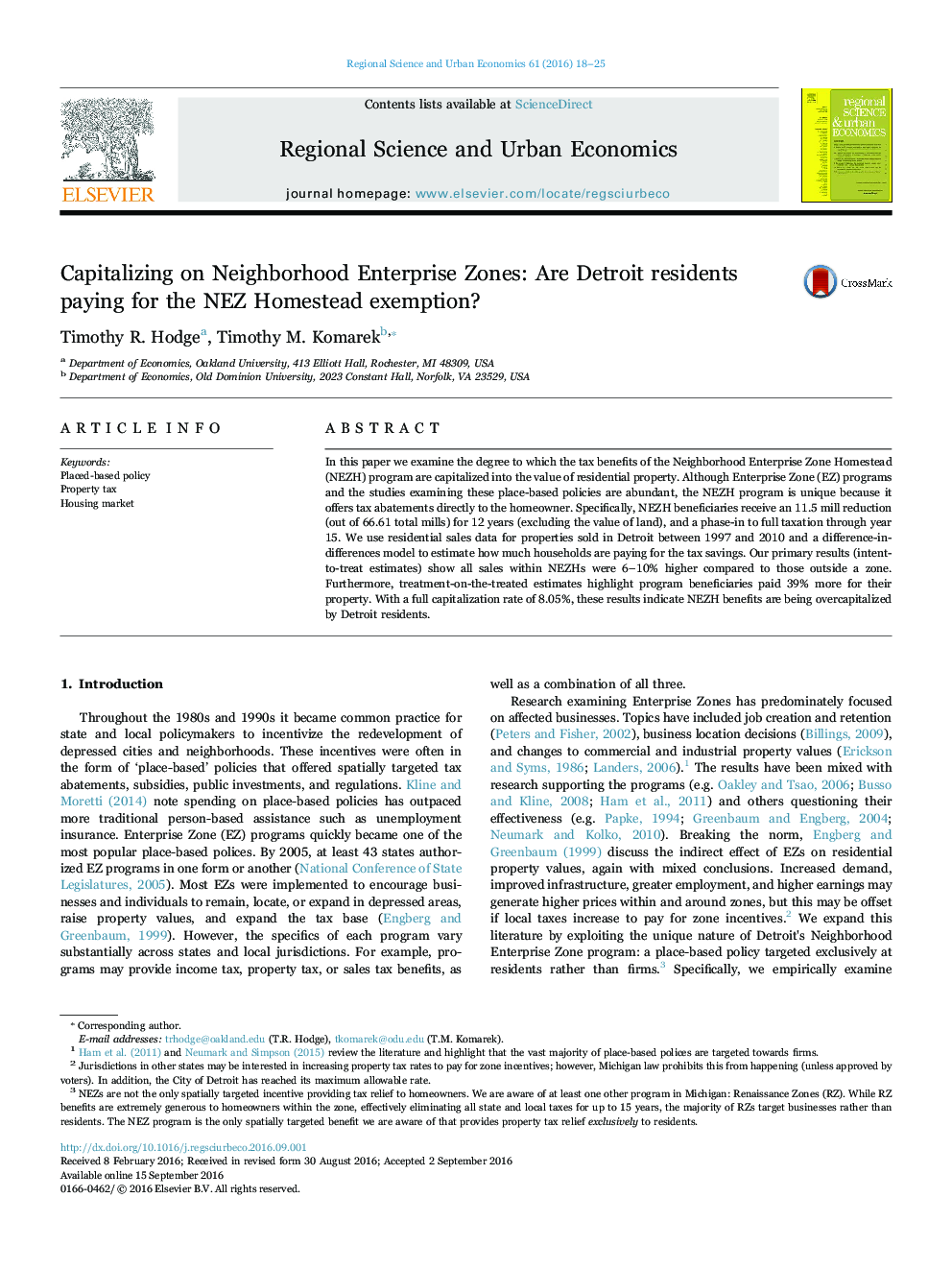| Article ID | Journal | Published Year | Pages | File Type |
|---|---|---|---|---|
| 5103670 | Regional Science and Urban Economics | 2016 | 8 Pages |
Abstract
In this paper we examine the degree to which the tax benefits of the Neighborhood Enterprise Zone Homestead (NEZH) program are capitalized into the value of residential property. Although Enterprise Zone (EZ) programs and the studies examining these place-based policies are abundant, the NEZH program is unique because it offers tax abatements directly to the homeowner. Specifically, NEZH beneficiaries receive an 11.5Â mill reduction (out of 66.61 total mills) for 12 years (excluding the value of land), and a phase-in to full taxation through year 15. We use residential sales data for properties sold in Detroit between 1997 and 2010 and a difference-in-differences model to estimate how much households are paying for the tax savings. Our primary results (intent-to-treat estimates) show all sales within NEZHs were 6-10% higher compared to those outside a zone. Furthermore, treatment-on-the-treated estimates highlight program beneficiaries paid 39% more for their property. With a full capitalization rate of 8.05%, these results indicate NEZH benefits are being overcapitalized by Detroit residents.
Keywords
Related Topics
Social Sciences and Humanities
Economics, Econometrics and Finance
Economics and Econometrics
Authors
Timothy R. Hodge, Timothy M. Komarek,
